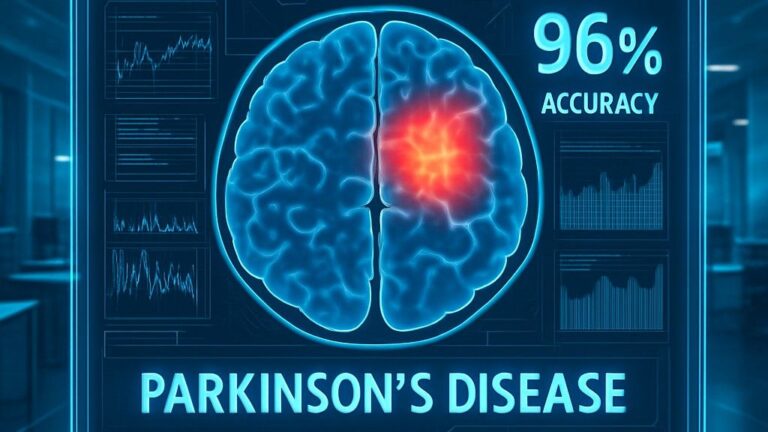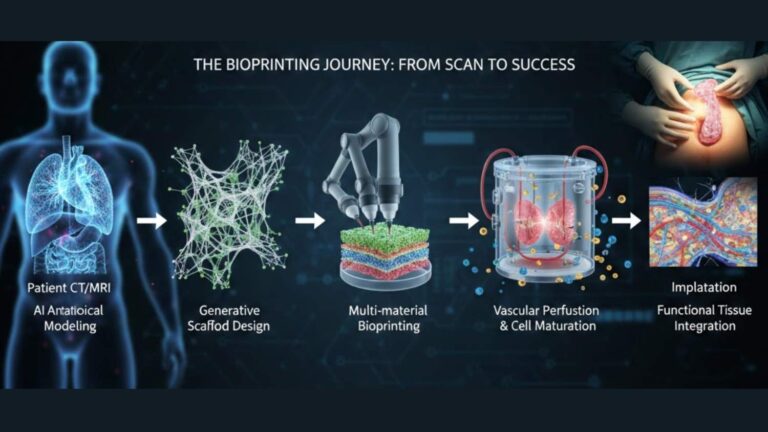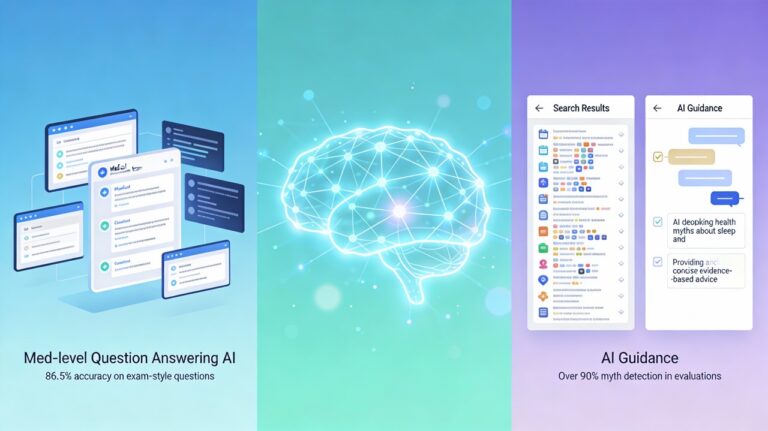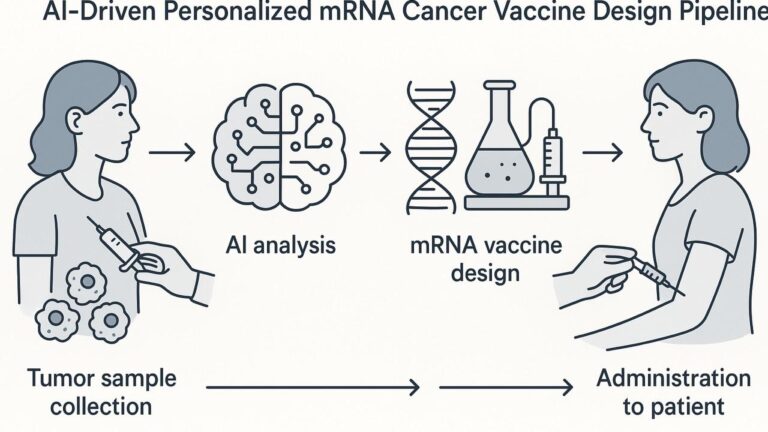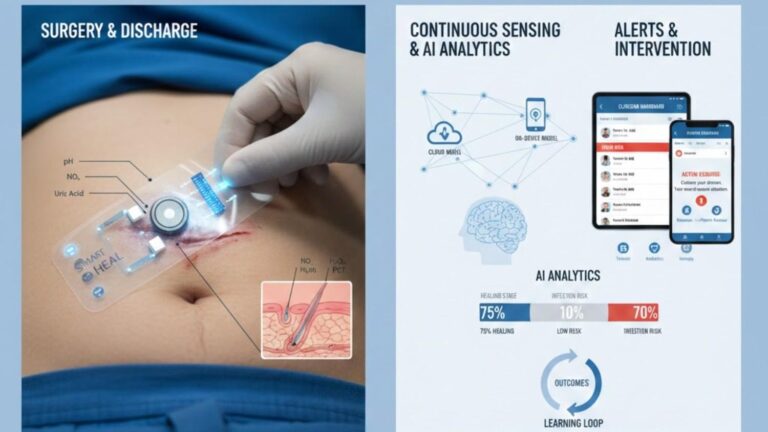Federated Learning Protects Patient Privacy in AI Diagnostics: Revolutionizing Healthcare Collaboration Without Compromising Data Security
Healthcare institutions worldwide face a fundamental challenge: how to leverage the power of artificial intelligence for improved patient care while maintaining strict data privacy and regulatory compliance. Federated learning has emerged as a revolutionary solution that enables hospitals to collaboratively train AI diagnostic models without ever sharing sensitive patient data. A groundbreaking multi-continental study involving 12 hospitals across 8 nations demonstrated that federated learning can achieve 94.8% diagnostic accuracy for gross tumor volume segmentation while maintaining complete patient data privacy. This transformative approach is reshaping how healthcare institutions collaborate, offering comparable performance to traditional centralized models while preserving the highest standards of patient confidentiality.

The Privacy-Performance Paradigm Shift
Traditional AI development in healthcare requires centralized data aggregation, where patient information from multiple institutions is pooled together for model training. This approach faces significant barriers including HIPAA compliance challenges, GDPR restrictions, data ownership concerns, and the risk of catastrophic data breaches. Over 30% of healthcare organizations globally have experienced a data breach in the past year, highlighting the urgent need for privacy-preserving solutions.
Federated Learning Architecture Revolution
Federated learning fundamentally inverts the traditional approach: instead of moving data to algorithms, the algorithm travels to the data. This innovative paradigm operates through several key components:
Local Model Training: Each healthcare institution trains AI models using only their own patient data, which never leaves their secure environment.
Parameter Aggregation: Instead of sharing raw patient information, institutions only exchange mathematical model parameters (weights and gradients) that represent learned patterns without containing identifiable patient data.
Global Model Synthesis: A central coordinator combines these parameters to create an improved global model that benefits from collective knowledge while maintaining individual privacy.
Iterative Enhancement: This process repeats multiple rounds, with each iteration improving diagnostic accuracy across all participating institutions.
Clinical Performance Achievements
Groundbreaking Multi-Institutional Successes
Real-World Medical Imaging Excellence: The Personal Health Train (PHT) framework coordinated the largest federated deep learning study in medical imaging to date, involving 12 hospitals across 8 nations for lung cancer gross tumor volume segmentation. Key achievements included:
- 94.8% diagnostic accuracy maintained across geographically distributed institutions
- Complete patient data privacy with no raw data sharing throughout the collaboration
- Secure aggregation server (SAS) ensuring model averaging occurred in trusted, inaccessible environments
- Global scalability demonstration across diverse healthcare systems and regulatory frameworks
Cardiac Disease Detection Breakthrough: Advanced federated learning frameworks achieved exceptional diagnostic performance across multiple cardiac conditions:
- 97.76% accuracy on Database 1 cardiac disease detection
- 98.43% accuracy on Database 2 multimodal cardiac analysis
- 99.12% accuracy on Database 3 comprehensive heart disease classification
- Multimodal integration of cardiac images, ECG signals, patient records, and nutrition data
Specialized Clinical Applications
Brain Tumor Analysis: Federated learning-enhanced brain tumor segmentation demonstrated remarkable scalability and accuracy improvements:
- Specificity increased to 0.96 with federated model scaling from 50 to 100 participating clients
- Dice coefficient reached 0.89, significantly outperforming traditional CNN and RNN approaches
- 98% overall accuracy for brain tumor classification using modified VGG16 architecture
- Privacy preservation across multiple medical institutions without compromising diagnostic quality
Diabetic Retinopathy Screening: A federated learning system for diabetic retinopathy diagnosis achieved 93.21% accuracy in five-category classification on unseen datasets and 91.05% accuracy on lower-quality images. This system demonstrated particular value for under-resourced institutions where high-quality imaging equipment may be limited.
Cardiovascular Risk Stratification: Federated deep forest classifiers for cardiovascular disease prediction achieved diagnostic accuracy exceeding 80% across seven common cardiovascular conditions:
- 87% accuracy for heart valve disease detection
- 83% accuracy for both arrhythmia and coronary heart disease diagnosis
- Privacy-protected feature engineering enabling comprehensive cardiovascular risk assessment
Advanced Privacy Protection Mechanisms
Multi-Layered Security Framework
Privacy-Preserving Federated Learning (PPFL) frameworks integrate multiple complementary security technologies:
Secure Multi-Party Computation (SMPC): Enables computations on encrypted data without revealing underlying patient information during model training processes.
Differential Privacy: Adds mathematically controlled noise to shared model parameters, making it computationally impossible to reverse-engineer individual patient data while preserving learning capabilities.
Homomorphic Encryption: Allows complex mathematical operations to be performed on encrypted model updates, adding additional privacy layers during federated aggregation.
Quantified Privacy Improvements
Systematic Privacy Enhancement: Comprehensive analysis demonstrates that federated learning provides 25% privacy risk reduction compared to traditional centralized approaches, particularly crucial in healthcare domains. Advanced PPFL frameworks achieve:
- 85% reduction in model inversion attack success rates
- 30% enhancement in privacy efficiency while maintaining diagnostic accuracy
- 95.2% to 98.3% accuracy retention despite privacy-preserving mechanisms
- 87% bandwidth utilization reduction compared to centralized data sharing approaches
Real-World Implementation and Validation
Multi-Continental Healthcare Collaboration
Global Glucose Management: A pioneering blockchain-enabled federated learning framework coordinated glucose management modeling across Europe, North America, and Asia. This implementation demonstrated:
- Effective privacy preservation across international regulatory boundaries
- Performance comparable to centralized datasets while maintaining data sovereignty
- Incentive mechanisms that reward honest participation and penalize malicious activities
- Reduced bias through access to diverse global patient populations
Dutch TAVI Collaborative: The Netherlands Heart Registration study involving all 16 Dutch TAVI hospitals compared federated learning approaches against centralized and local model strategies:
- Federated averaging (FedAvg) achieved 0.68 AUC performance, matching centralized model results
- Ensemble federated models demonstrated comparable calibration to traditional approaches
- External geographic validation confirmed federated model generalizability across diverse clinical settings
- Viable alternative to centralized training while preserving institutional data privacy
Clinical Decision Support Integration
AI-Enhanced Clinical Systems: Federated learning integration with Clinical Decision Support Systems (CDSS) demonstrated over 30% improvement in predictive performance compared to traditional rule-based systems. Key enhancements included:
- Real-time diagnostic capabilities through edge AI integration
- Automated therapy recommendations based on collaborative learning insights
- Scalable AI-based interventions deployable across diverse healthcare settings
- Evidence-based, data-driven healthcare solutions without compromising patient privacy
Technical Innovation and Performance Optimization
Advanced Aggregation Methodologies
Dynamic Adaptive Aggregation: Novel approaches dynamically alternate between Federated Averaging (FedAvg) and Federated Stochastic Gradient Descent (FedSGD) based on data divergence during communication rounds. This adaptive methodology:
- Optimizes model convergence while preserving privacy in collaborative settings
- Addresses non-IID data distributions common across different healthcare institutions
- Maintains high classification accuracy across specialized medical datasets including TB chest X-rays, brain tumor MRI scans, and diabetic retinopathy images
Weighted Transfer Learning: FedHealth 2 framework incorporates client similarity assessment through pretrained models, achieving 10%+ accuracy improvement for activity recognition and healthcare applications. This approach:
- Tackles domain shifts between different healthcare institutions
- Enables personalized healthcare models tailored to local patient populations
- Preserves batch normalization properties for enhanced model performance
Blockchain Integration and Incentive Mechanisms
NFT-Based Data Marketplace: Innovative frameworks combine federated learning with blockchain technology and Non-Fungible Tokens (NFTs) to create secure medical data sharing ecosystems. Key features include:
- Clear data ownership delineation through NFT-based access control
- Comprehensive incentive mechanisms based on data quality, relevance, and contribution frequency
- Polyak-averaging aggregation for optimal global model formation
- Comparable performance to centralized machine learning while ensuring superior security
Addressing Implementation Challenges
Data Heterogeneity and Non-IID Distributions
Institutional Bias Mitigation: Real-world healthcare institutions exhibit significant data heterogeneity due to demographic differences, instrumentation variations, and clinical protocol differences. Advanced federated learning frameworks address these challenges through:
Sophisticated Preprocessing: Common preprocessing routines and data harmonization protocols enable integration across heterogeneous institutional datasets while preserving local data sovereignty.
Robust Aggregation Methods: Advanced aggregation algorithms account for varying data quality and institutional contributions, ensuring fair representation in global model development.
Continuous Validation: External geographic validation demonstrates that federated models maintain performance across diverse clinical settings and patient populations.
Regulatory Compliance and Trust Frameworks
International Regulatory Alignment: Federated learning frameworks specifically address HIPAA, GDPR, and international data protection requirements:
- Data sovereignty preservation enables compliance with local regulations
- Audit trails and transparency mechanisms support regulatory reporting requirements
- Trust models adapted to clinical workflows facilitate adoption in regulated healthcare environments
Governance and Ethics: Comprehensive governance frameworks address ethical, legal, and social implications of federated healthcare AI:
- Informed consent models adapted for federated learning applications
- Institutional review board (IRB) protocols for multi-institutional collaborations
- Data use agreements that protect institutional interests while enabling collaboration
Future Implications and Healthcare Transformation
Scalable Global Healthcare Intelligence
Unprecedented Dataset Access: Federated learning enables collaboration on datasets of unprecedented size and diversity without compromising patient privacy. This capability promises:
- More robust and generalizable AI models trained on diverse global populations
- Reduced institutional bias through exposure to varied clinical practices and demographics
- Accelerated medical research through privacy-preserving multi-institutional collaboration
- Democratized access to advanced AI capabilities for under-resourced healthcare institutions
Precision Medicine Advancement: Personalized healthcare models developed through federated learning can adapt to local patient populations while benefiting from global medical knowledge:
- Risk stratification models incorporating diverse patient characteristics and health records
- Treatment response prediction based on collaborative learning across institutional boundaries
- Clinical decision support enhanced by collective medical intelligence
Edge Computing Integration
Real-Time Diagnostic Capabilities: Integration of federated learning with edge AI enables real-time patient monitoring and diagnostic support:
- Inference latency below 50 milliseconds for critical diagnostic applications
- Continuous model refinement through federated learning updates
- Privacy-preserving real-time analytics for IoMT and wearable device integration
- Scalable deployment across diverse clinical environments
Federated Learning Healthcare Architecture

Conclusion: The Privacy-Preserving Future of Healthcare AI
Federated learning represents a paradigm shift in healthcare AI development that resolves the fundamental tension between data utility and patient privacy. By enabling collaborative model training without data sharing, federated learning unlocks the potential for global healthcare intelligence while maintaining the highest standards of patient confidentiality.
The compelling evidence from real-world implementations demonstrates that federated learning can match or exceed the performance of traditional centralized approaches while providing superior privacy protection and regulatory compliance. As healthcare systems worldwide embrace data-driven precision medicine, federated learning provides the technological foundation for secure, scalable, and ethical AI development.
The future of healthcare AI lies not in choosing between privacy and performance, but in optimizing their synergy through federated learning architectures. This approach promises to democratize access to advanced AI capabilities, accelerate medical research through global collaboration, and enhance patient care while preserving the trust and confidentiality that form the foundation of the healthcare system.
Through responsible implementation and continued technological advancement, federated learning will play an increasingly central role in transforming healthcare delivery, advancing medical knowledge, and improving patient outcomes on a global scale—all while keeping patient data exactly where it belongs: securely within the institutions that care for them.

